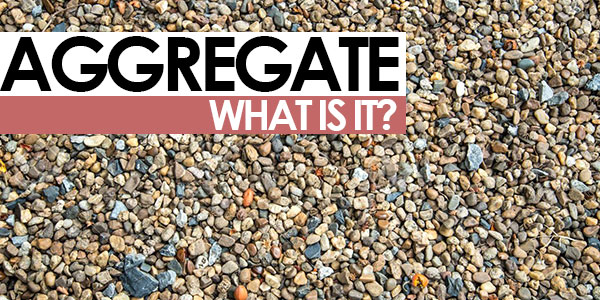In the construction world, Aggregates refer to the naturally occurring rocks and minerals in any particular area
Some examples of naturally occurring aggregate include granite, basalt, sand, gravel, sandstone, river rock, limestone, dolomite, quartz, etc. Depending on where you are in the United States/Canada, you will be working with different types of aggregate. Check out our detailed map (Page 30) to see the most commonly occurring aggregate in your area. Knowing what type of aggregate is found in your area is critical for selecting the right tools for your work. This is because each aggregate has varying hardness and abrasiveness. For example, Florida features soft aggregates such as sandstone, siliceous, soft shell, etc. while Louisiana contains some of the hardest in the country including flint rock, quartz, and then infamous river rock.
Concrete is a mixture of aggregates that are crushed and converted into a usable material for structural use. Concrete is made up of three basic components: water, aggregate (rock, sand, or gravel) and Portland cement. Cement, usually in powder form, acts as a binding agent when mixed with water and aggregates. This combination, or concrete mix, will be poured and harden into the durable material with which we are all familiar with, concrete!
With that in mind, dealing with the right company and, keeping the right inventory of diamond tools on hand, will save you both time and money. Our products cover all aggregates anywhere in the USA/Canada and around the world! From our Blackcat (for soft abrasive materials like Asphalt) to our Wolv (for river rock), our selection of core bits has you covered. Tell us which aggregates you are dealing with and we will select the best core bit for your job, it is that easy!

